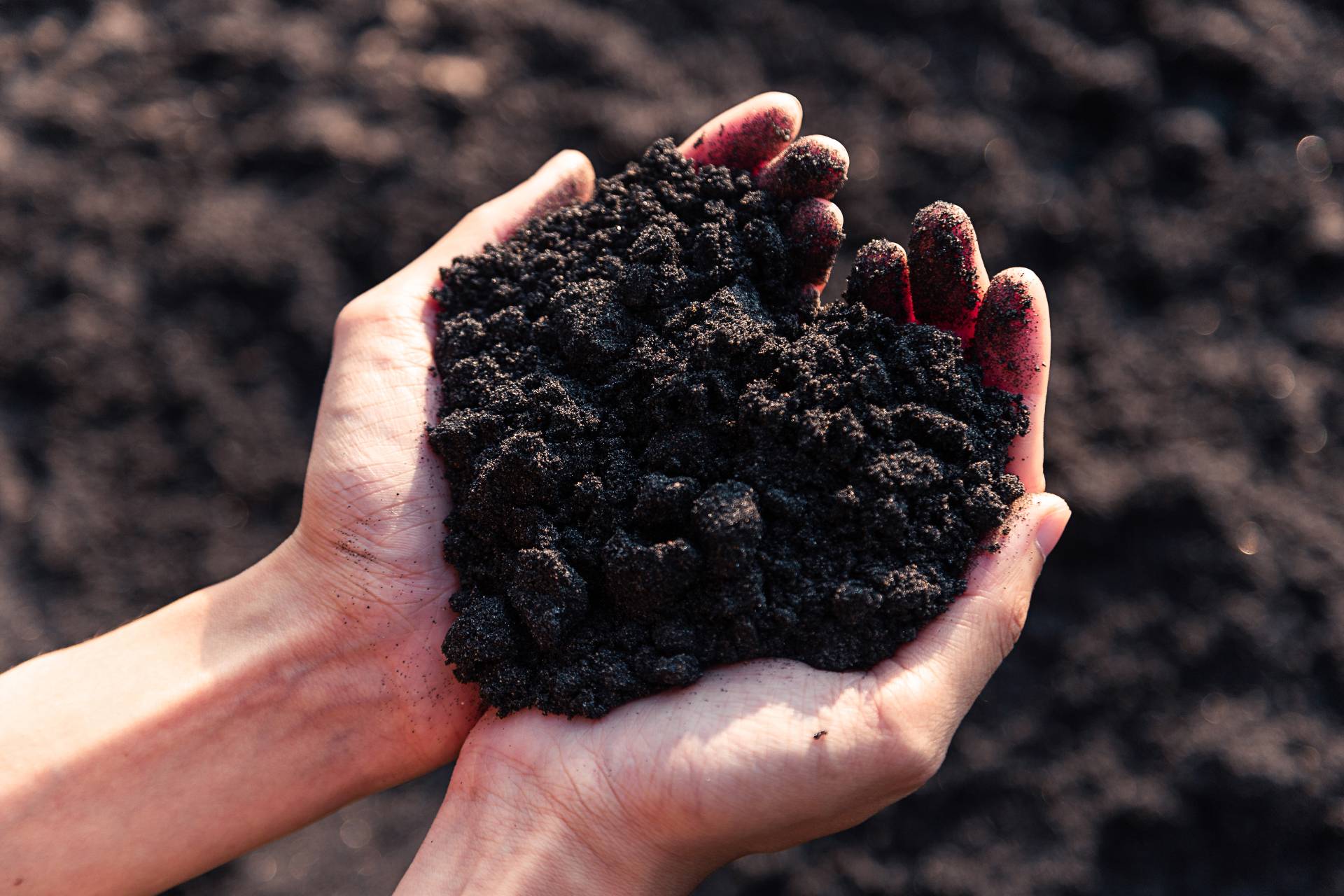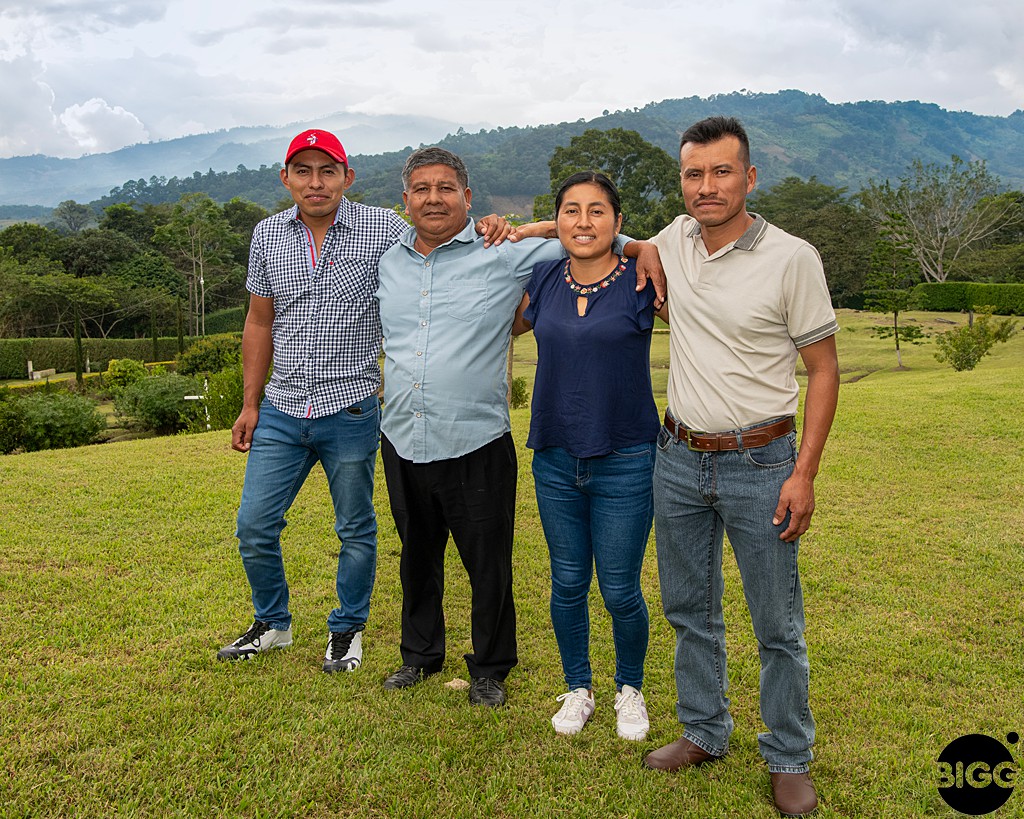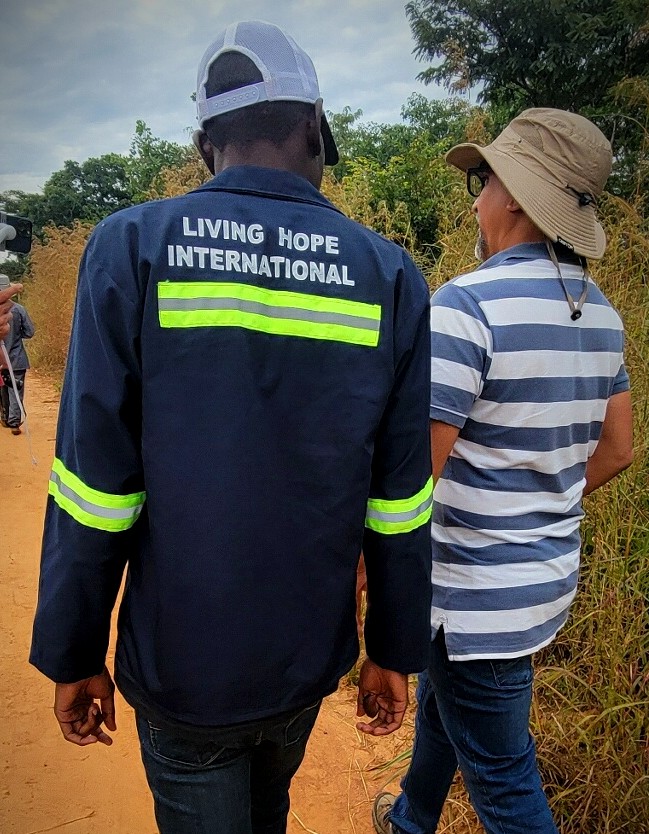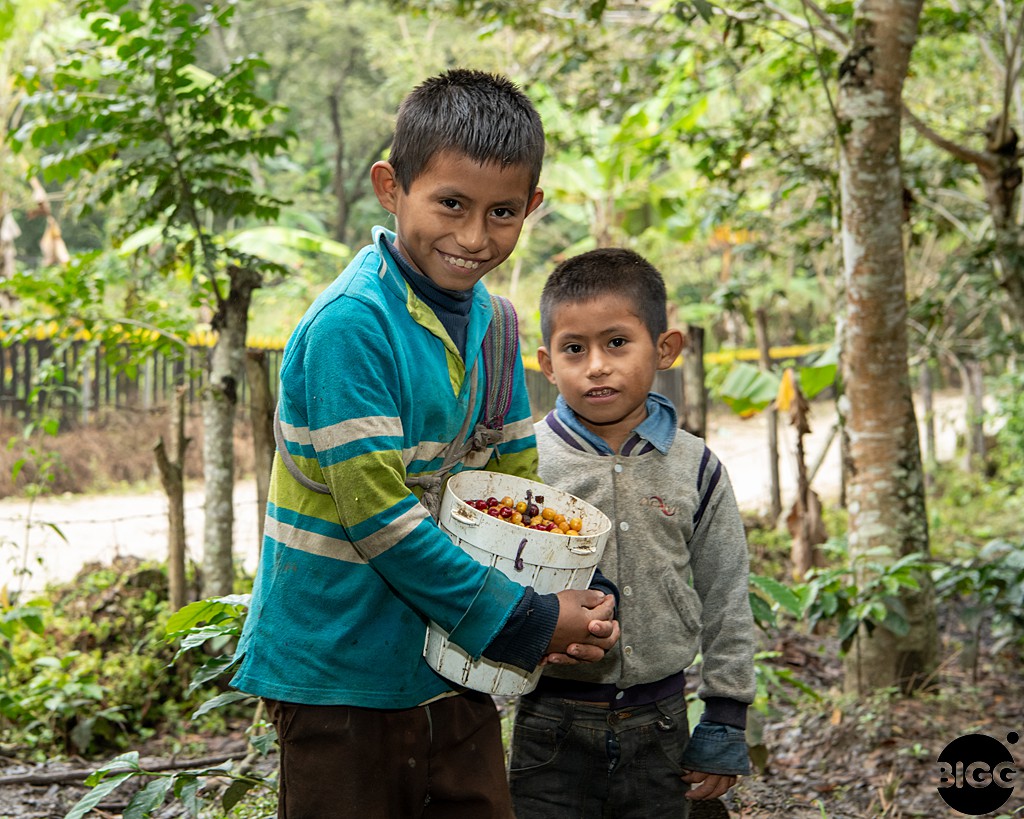By Bob Fish
Oh hey there, and Happy Earth Day!
One of the best ways I can think of to celebrate Earth Day and honor our beautiful planet is to reduce the amount of trash we send to the landfill. If you make a lot of coffee at home like Michelle and I do, then we have some good news for you. You don’t have to throw away the grounds, or even the paper filters… you can compost them! Not only do you reduce your volume of trash, but you can create something that’s a powerful force for good in your garden, returning nutrients and carbon to the soil.
How To
The “how” is easy. We don’t have a compost bin at our condo, but we keep a large Tupperware container by our coffee rig. After we brew, we dump the grounds in. And we stir them up periodically to keep them from getting moldy. That’s all there is to it! You can use the grounds directly in your garden (like we do), or you can add them to your compost bin, if you’ve got one. For the compost bin, coffee grounds are considered a “green” item. Find more about that here.
By the way, if you don’t have a compost bin, and you don’t want to use the grounds in your garden, you can still recycle them the same way you recycle your grass clippings. They can go straight into your yard waste bin, right along with the coffee filters. The filters are just paper, after all, and that’s just wood pulp, not that different from the sticks you pick up in your yard.
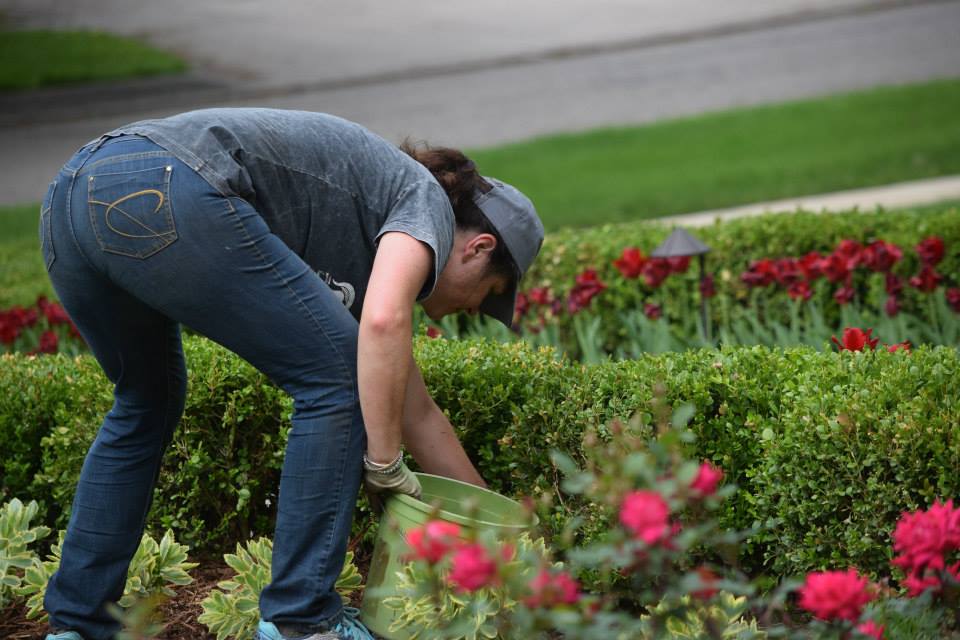
Why To
The “why” of composting is easy, too. First, like I mentioned, you’ll be contributing to a reduction in landfill waste. Plus, coffee grounds are super rich in organic material, nitrogen, and carbon, and anytime you can return any of those back to the soil is great.
If you’re going to use the grounds directly in your garden, there are couple of things to keep in mind. Although coffee grounds can be super good for drainage, particularly if you have “heavy” soil, add it sparingly. It can be easily overdone. Also, although grounds are often considered a good acidifier, in fact most of the acid in coffee is water soluble. So after brewing, the grounds are close to neutral pH.
It’s the caffeine that can be a problem. From an evolutionary perspective, caffeine developed as a natural defense for the coffee tree. It works as an insecticide to keep bugs from chewing on the leaves. And it also works as an herbicide. When the leaves and fruit fall, they inject high levels of caffeine in the soil, choking out other plants and giving coffee, and its cousins tea and cocoa, a competitive advantage in the landscape. Depending how the coffee was prepared for your beverage there can be significant amount of caffeine left in the grounds. So please use coffee in your compost, but do not be too aggressive about it. If you are applying coffee grounds directly in your garden, spread very lightly and not at the base of any plantings, it could easily kill something precious to you.
On another note, coffee grounds applied directly to a weed patch is a great natural way to eradicate weeds. Coffee is the gift that keeps on giving. ?
Partners for the Planet
By the way, composting isn’t just important to us at the coffee drinker end of the chain. When we work with our Farm-Direct partners, we look for them to be big into composting too! Michelle and I like to know that the Coffee Farms we have built relationships with have found a way to compost their cascara after ‘wet milling’ the coffee cherry and is one of the many check boxes we have to know that a particular Farm-Direct relationship is right for us.
At the El Recreo Farm, our Farm-Direct partner in Jinotega, Nicaragua that supplies a third of the coffee in our BIGGBY Best Blend, they have taken composting to a whole new level. They have an extensive worm farm that breaks down the cast-off cherries into a fertilizer that can be put back out to the fields to nourish the next season’s crop.
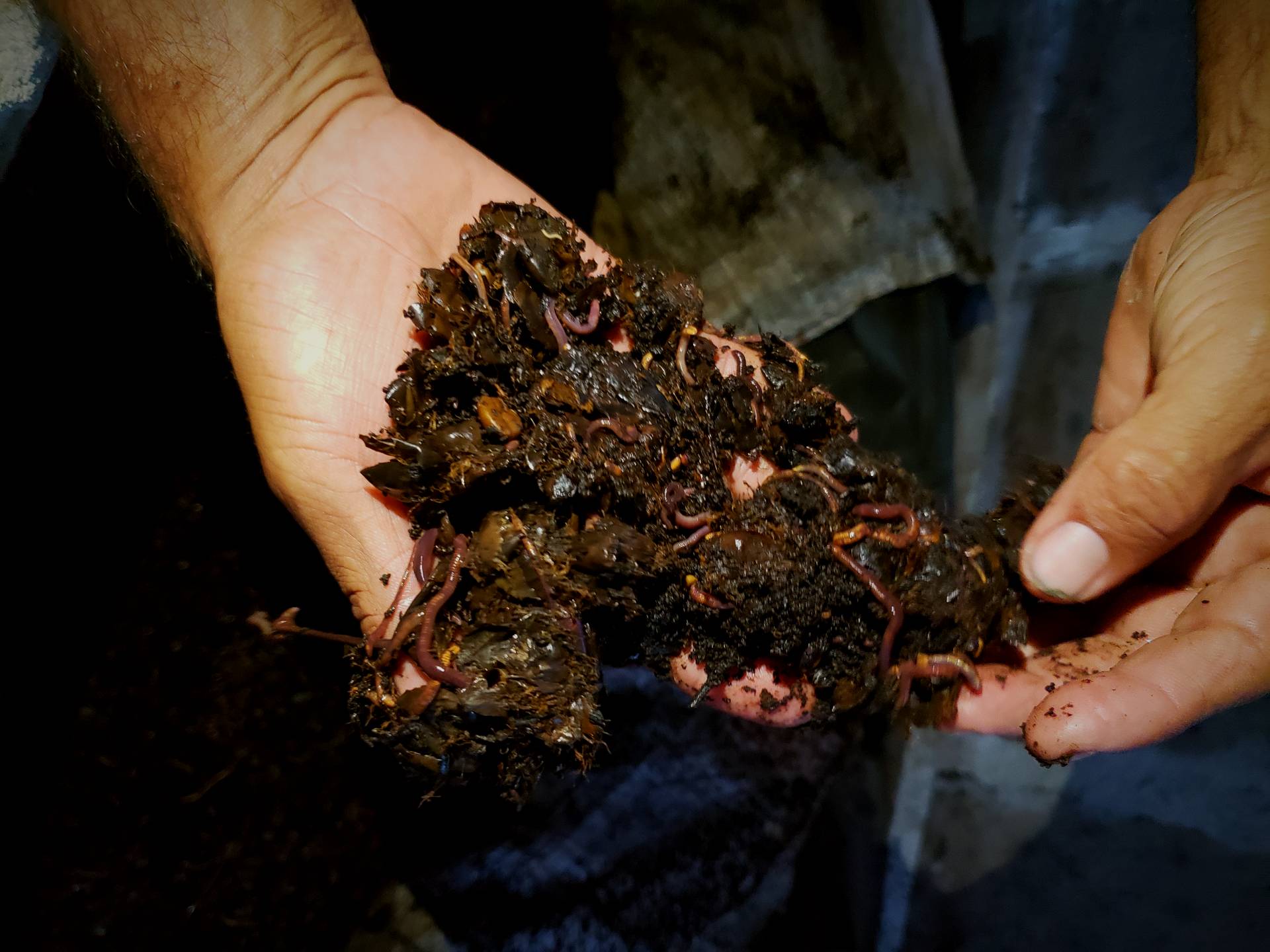
The worms doing their thing at the El Recreo Coffee Farm.
I like to think about El Recreo as I stir the used BIGGBY Best grounds in our composting Tupperware in our kitchen. Maybe it’s a romantic notion, but I just think that it is really cool that the very grounds I’m stirring came from the rich, volcanic soil at El Recreo. And when we use those grounds in our garden, we’re adding nutrients that came from a different hemisphere! Talk about making the world a smaller place! Please join us in the journey.
Now you know what I know.

